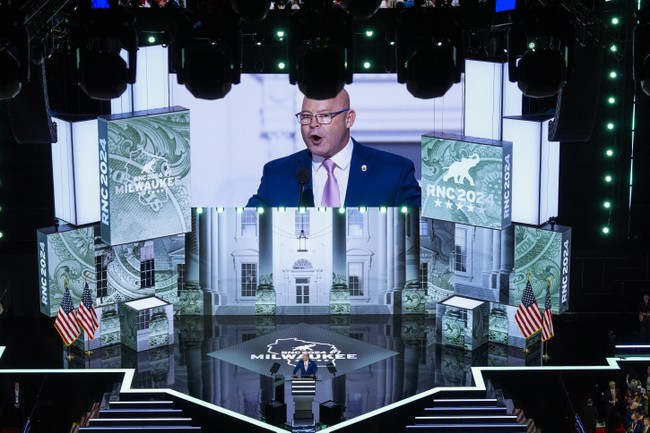Could NATO Have Prevented the War in Ukraine?
As the conflict rages on, outgoing NATO chief Jens Stoltenberg reflects on missed opportunities to prevent the war.
Published September 15, 2024 - 00:09am

Image recovered from de.marketscreener.com
Jens Stoltenberg, the outgoing Secretary General of NATO, has sparked significant debate with his recent admission that the alliance could have done more to arm Ukraine and potentially prevent Russia's invasion in 2022. This candid reflection has opened up discussions about NATO's role and the complexities of international diplomacy leading up to the war.
In an interview with the German weekly newspaper Frankfurter Allgemeine Zeitung (FAS), Stoltenberg emphasized that providing military support to Ukraine before the invasion could have deterred Russian aggression. He stated, Now we provide military stuff to a war -- then we could have provided military stuff to prevent the war. This remark highlights the hesitancy within NATO to arm Kyiv prior to the conflict due to fears of escalating tensions with Russia.
Before Russia's full-scale invasion, Ukraine, which is not a NATO member, repeatedly requested weapons systems from the alliance. However, NATO allies were reluctant to supply arms, anticipating a potential escalation. Stoltenberg underscored this point, noting that the organization could have potentially averted the conflict by taking a stronger stance earlier.
Stoltenberg is set to step down from his role in October, having held the position since 2014. Mark Rutte, the former Dutch Prime Minister, has been announced as his successor. The transition in leadership comes at a critical juncture for NATO, as the alliance continues to navigate the complexities of the ongoing war in Ukraine.
The reluctance to arm Ukraine before the invasion is now being scrutinized, especially in light of the extensive military support provided to Kyiv after the war began. Following initial hesitation, Ukraine received a steady flow of weapons systems from its allies. This shift in support underscores a significant change in NATO's strategy as the realities of the conflict unfolded.
Stoltenberg is firm in his belief that the termination of the war in Ukraine can only be achieved through negotiations. He remarked, To end this war there will have to be again dialogue with Russia at a certain stage. But it has to be based on Ukrainian strength. This stance underscores the importance of diplomatic engagement grounded in the strength and resilience of Ukraine.
As Stoltenberg prepares to exit his role, speculation surrounds his future endeavors. He has not confirmed whether he will take over from German diplomat Christoph Heusgen as the chair of the Munich Security Conference (MSC). He indicated that he has numerous options and intends to reside in Oslo, leaving his next steps open to interpretation.
The reflections of the outgoing NATO chief have also illuminated the broader implications for international relations and defense policies. The hesitation to arm Ukraine pre-invasion and the subsequent support provided post-invasion illustrate the delicate balance that NATO strives to maintain in its diplomatic and military engagements. This balance involves weighing the immediate risks of escalation against the long-term goal of deterring aggression.
NATO's approach to the war in Ukraine has been a focal point for global discussions on conflict prevention and crisis management. The alliance's initial reluctance contrasted with its later robust support reflects the evolving strategies and lessons learned in real-time. The insights from Stoltenberg's tenure shed light on the challenges faced by NATO in addressing contemporary security threats while upholding its foundational principles.
As NATO looks toward the future with new leadership, the experiences and reflections from Stoltenberg's time as Secretary General will likely inform the alliance's strategies and policies. The ongoing conflict in Ukraine remains a critical issue, with the potential to shape the geopolitical landscape for years to come.
The integration of military support, diplomatic efforts, and strategic partnerships will continue to be essential components of NATO's approach. The reflections on missed opportunities serve as a reminder of the importance of proactive measures in international security and the complexities of maintaining peace and stability in a turbulent world.
Stoltenberg's acknowledgment of NATO's potential to do more underscores the reality that choices made at critical junctures can have far-reaching consequences. As the world watches the developments in Ukraine, the lessons drawn from this conflict will likely influence future policies and actions aimed at preventing similar crises.
In conclusion, the reflections of Jens Stoltenberg on NATO's role in the prelude to the Ukraine war offer a poignant commentary on the challenges of international diplomacy and defense. The deliberations on what could have been done differently will continue to resonate within the alliance and among global leaders as they strive to navigate a complex and often unpredictable international landscape.






